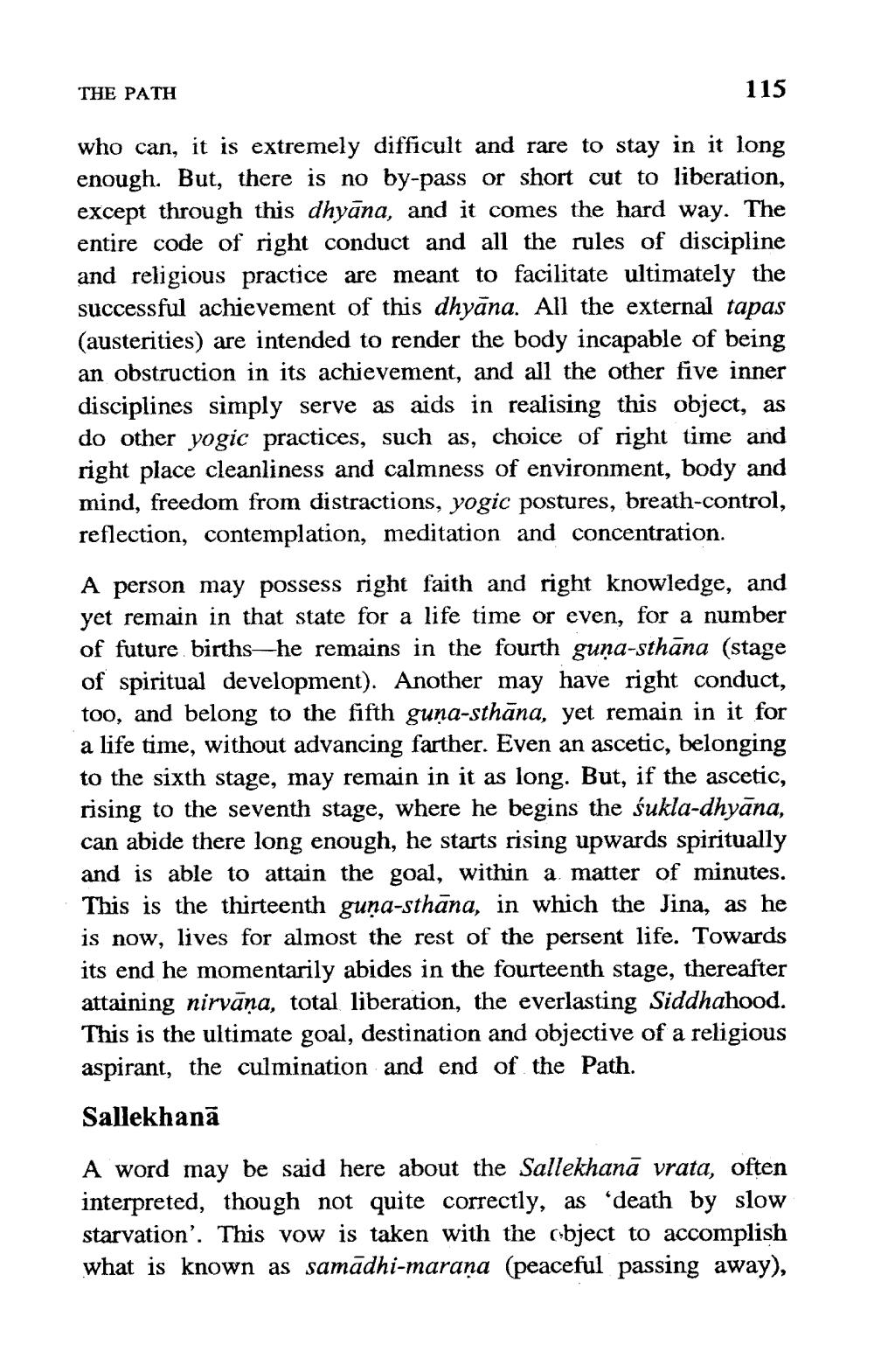________________
THE PATH
115
who can, it is extremely difficult and rare to stay in it long enough. But, there is no by-pass or short cut to liberation, except through this dhyāna, and it comes the hard way. The entire code of right conduct and all the rules of discipline and religious practice are meant to facilitate ultimately the successful achievement of this dhyana. All the external tapas (austerities) are intended to render the body incapable of being an obstruction in its achievement, and all the other five inner disciplines simply serve as aids in realising this object, as do other yogic practices, such as, choice of right time and right place cleanliness and calmness of environment, body and mind, freedom from distractions, yogic postures, breath-control, reflection, contemplation, meditation and concentration.
A person may possess right faith and right knowledge, and yet remain in that state for a life time or even, for a number of future births-he remains in the fourth guna-sthāna (stage of spiritual development). Another may have right conduct, too, and belong to the fifth guṇa-sthāna, yet remain in it for a life time, without advancing farther. Even an ascetic, belonging to the sixth stage, may remain in it as long. But, if the ascetic, rising to the seventh stage, where he begins the śukla-dhyāna, can abide there long enough, he starts rising upwards spiritually and is able to attain the goal, within a matter of minutes. This is the thirteenth guṇa-sthāna, in which the Jina, as he is now, lives for almost the rest of the persent life. Towards its end he momentarily abides in the fourteenth stage, thereafter attaining nirvāṇa, total liberation, the everlasting Siddhahood. This is the ultimate goal, destination and objective of a religious aspirant, the culmination and end of the Path.
Sallekhanā
A word may be said here about the Sallekhana vrata, often interpreted, though not quite correctly, as 'death by slow starvation'. This vow is taken with the object to accomplish what is known as samadhi-maraṇa (peaceful passing away),




